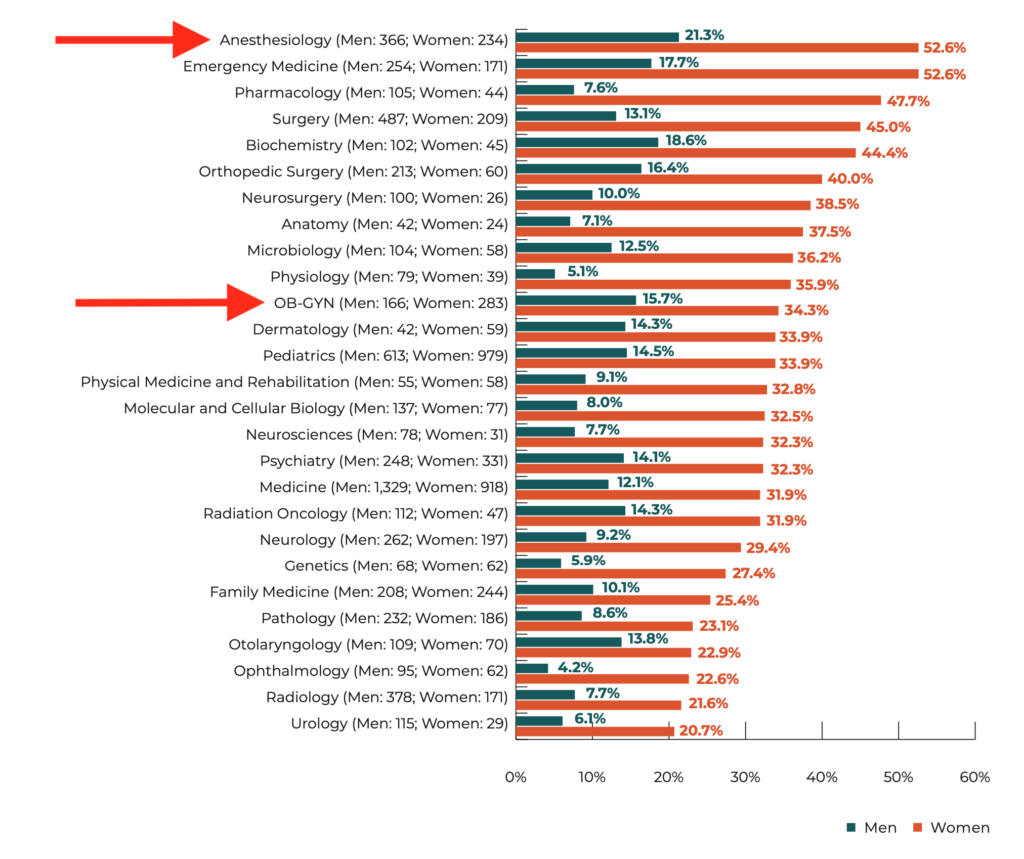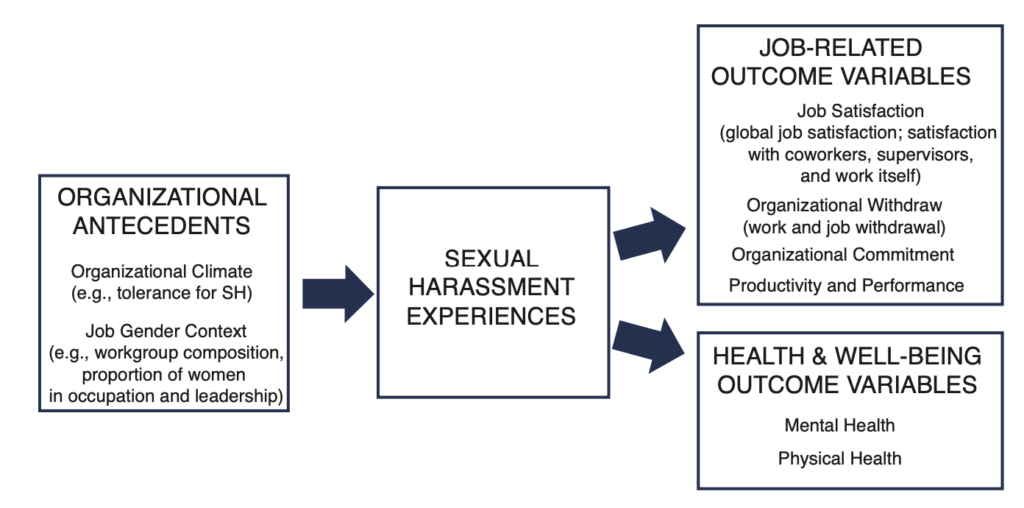
Content warning: This post addresses sexual assault, sexual harassment, and violence.
On Saturday, May 20, 2023, at the American College of Gynecology national meeting, an attendee marched up to a podium where Dr. William Burke spoke and slapped him across the face. The attendee and spouse of one of Dr. Burke’s former trainees grabbed Burke by the collar, turned to the audience, and said: “This moth****cker sexually assaulted my wife seven years ago.” He then slapped Burke across the face. He went on to say that this action supported all women in the audience and all trainees. “Seven years, my wife is suffering because you are a f**king predator.”
The video is intense and violent – though not nearly as violent as it might have been. The attendee seems to have aimed for public humiliation, rather than long-term physical harm. Stony Brook obstetric gynecologist Dr. Burke decided not to press charges. The school states they are looking into the allegations… seven years later.
The video highlights one single moment in a seven-year-long road for one obstetrician-gynecologist. No matter how much pain women suffer at the hands of powerful men, we rarely see anything publicly that looks like acknowledgment, let alone transparent action. It’s tempting to take glee in this kind of vigilante heroism – especially under an “Excellence in Action” sign.
Social norms usually keep these kinds of outbursts in check. What amount of suffering in silence has this man’s wife endured to lead to this kind of breach of decorum? For this kind of professional sacrifice? No matter how one may justify the action, the former trainee will likely face personal and professional consequences. The way she walks out, with her head held high, looking like a queen, is a testament to her resolution during this incident.
That is how fed up she and her husband are with our system of silence and oppression.
We don’t have much information on this situation – and that’s by design. In the video, the former trainee states that she reported the incident. But that doesn’t mean we will ever learn the details from Stony Brook.
I’m not holding my breath that the university will voluntarily release any information on any internal reports that may exist regarding Dr. Burke. Maintaining secrecy about serious ethical violations -sexual harassment and sexual assault – is typical in academia. Fear of lawsuits from predators and reputation damage mean organizations prefer silence over courage.
Only a few cases ever see the light of day. Cases like Michigan State’s sports medicine physician Dr. Larry Nassar, UCLA’s Ob/Gyn Dr. James Heap, Harvard’ urgent care physician Dr. Jeffrey R. Schapiro, and Yale anesthesiologist Dr. Manuel Lopes Fontes are the tip of the iceberg. Most of these cases came to light because of their impact on patients. We are long overdue for a reconning regarding the way women in medicine are treated.
Sexual Harassment in Medicine is Common
The 2022 AAMC report out last summer found that over one-third of all women faculty and 13% of men faculty experienced sexual harassment in the last year. It was highest in Anesthesiology (my field) and Emergency Medicine, both with 52.6% of women faculty experiencing harassment. Despite women representing an increasingly dominant proportion of Ob/Gyn residents, 34% of women faculty in the field continue to experience sexual harassment.

The abysmal numbers in this graph show how much work there is to do in academic medicine.
Harms of Sexual Harassment
Women in medicine, at all levels, suffer exorbitant harm from sexual harassment. Harassment is directly linked with declines in psychological and professional well-being. This impacts our physical and mental health. This impacts our career advancement. Not only does harassment impact the victim, but it also impacts the community – the witnesses, the bystanders, and the entire organization. It impacts the outcomes for patients and research.
“Negative effects have been documented in virtually every context and every group that has been studied. That is, the impact of sexual harassment extends across lines of industry, occupation, race, and social class”
– NASEM Sexual Harassment of Women Report
Organizational Betrayal
Some folks who see this video will ask, why on earth would someone choose public shaming and assault to attain justice?
The answer is organizational betrayal.
Dr. Jennifer Freyd, who coined the term Institutional Betrayal, defines it as:
- Institutions harming those dependent on the institution.
- Includes the failure to prevent or respond supportively to wrongdoings within the institution when there is a reasonable expectation of protection.
- The harm of institutional betrayal is both pragmatic and psychological.
While there are supposed to be mechanisms to address harassment, organizations often fail to protect their employees from harassment and worse yet – directly contribute to harm. While we don’t know the details of the video’s physician trainee’s experience, we can assume her reporting did not lead to an outcome that she found to be just. Both the NASEM and AAMC reports show she is not alone.
The organizational culture impacts sexual harassment experiences and outcomes in predictable harmful ways. Research shows that women who experience sexual assault and institutional betrayal have increased anxiety, trauma-specific sexual symptoms, dissociations, and problematic sexual functioning.

Abusers often wield significant power within organizations that protect them. Official channels through universities and human resource departments rarely promote accountability for abusers. Rather, they often tolerate sexual harassment and support victim suppression.
These are the opposite of restorative justice practices.
A culture of silence in medicine means few victims feel safe reporting. Reporting may sabotage a career into which they’ve already invested countless hours and dollars. Physicians and physicians-in-training face a terrible bind – we need these organizations to advance our careers.
Organizational Ethics Requires Courage
If organizations want to be better, they have to do better. This means choosing moral action over self-protection against public backlash. Universities and hospitals must prioritize short-term costs and potential legal risks because it is the right thing to do.
Being courageous isn’t easy, but it’s still the right move. The stakes could not be higher. This courage buffers against institutional betrayal, protects employees, and fosters organizational commitment after harassment.
Freyd’s Center for Institutional Courage offers 11 steps to promote institutional courage:
- Comply with civil rights laws and go beyond mere compliance; beware risk management
- Educate the institutional community (especially leadership)
- Add checks and balances to power structure and diffuse highly dependent relationships
- Respond well to victim disclosures (& create a trauma-informed reporting policy)
- Bear witness, be accountable, apologize
- Cherish the whistleblowers; cherish the truth tellers
- Conduct scientifically-sound anonymous surveys
- Regularly engage in self-study
- Be transparent about data and policy
- Use the organization to address the societal problem
- Commit on-going resources to 1-10
Everywhere is the place. Every day is the time.
In the video, we can hear a women state to the audience member: “not the place, not the time.”
Too often, we – as individuals and as organizations – conflate polite manners with ethics. But conforming to decorum is not real professionalism – it is performative compliance with social norms. Predators hide behind pleasantries, enabling them to continue to harm others.
I don’t condone the violence at the Baltimore ACOG meeting, but I can’t condemn it either. From where I sit, we have a lot to thank the attendee for.
We need everywhere to be the place and every day to be the time to call out harassment and abuse. You don’t have to slap a conference speaker to use your power to advocate for change. Sitting in silence while abuse is perpetuated in our places of education and work harms us all.
Secrets can only persist in silence.
We must rise up against this behavior. Even and especially when it is uncomfortable. Otherwise, sexual harassment and assault in medicine will persist.
Alyssa Burgart, MD, MA is co-editor of BioethicsToday and a clinical associate professor at Stanford University. She also writes at Poppies & Propofol.